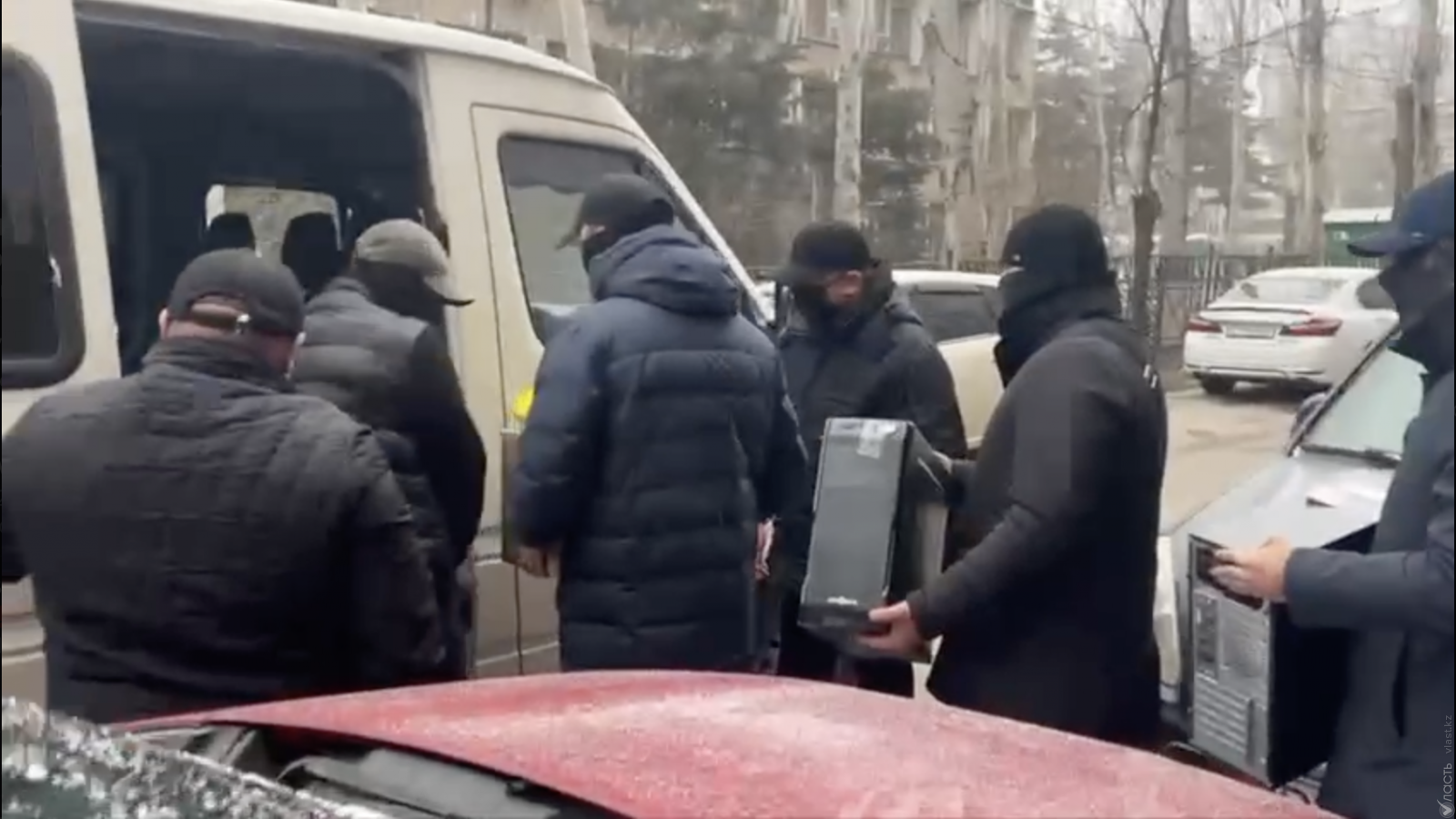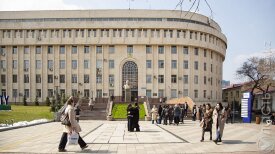A recent wave of raids and detentions targeting independent and investigative journalists signaled how rapidly media freedom is deteriorating in Kyrgyzstan. These are worrying developments in a media space that has decidedly worsened over the last couple of years, since President Sadyr Japarov took power. A repressive draft media law, which is now under consideration in parliament, risks making things even worse.
Raids and Arrests of Journalists
On January 15, the office of well-known online media 24.kg was raided by the State Committee for National Security (GKNB) and its editor-in-chief and director were taken into custody and interrogated on charges of war propaganda in relation to the outlet’s coverage of Russia’s war against Ukraine. The following day, police also raided the office of online media Temirov Live - owned by Bolot Temirov, a blogger known for its investigative reporting - and detained and searched the homes of 11 journalists that collaborated with the media outlet (Temirov’s wife was also detained) . They were all later sent to pre-trial detention for two months pending an investigation on charges of publicly calling for “disobedience and mass riots”.
Temirov Live was previously under the spotlight in 2022, when its founder was stripped of his Kyrgyz citizenship and deported to Russia, where he also was a citizen. His deportation followed a raid of Temirov Live’s office and a court case on trumped-up charges of drug possession, document forgery, and illegal border-crossing. Although a local court cleared him of these charges in September 2022, he was nevertheless deported on dubious grounds in November 2022 and has since been denied entry back into Kyrgyzstan. But his team continued its investigative work to expose high-level corruption.
As such, the recent wave of raids and detentions represent a new chilling development in a long-term trend of attacks to freedom of speech in Kyrgyzstan, a trend that we at International Partnership for Human Rights (IPHR) also documented in our recent briefing paper for the EU’s Human Rights Dialogue with Kyrgyzstan (a bilateral forum for addressing human rights developments).
The OSCE’s envoy for Freedom of the Media Teresa Ribeiro said that criminal investigations such as those launched in these cases “may have a chilling effect on the media freedom and reporting on important issues of public interest in the country.”
In a joint statement, IPHR and seven other human rights groups also said that the raids and detentions were “clear retaliation” for independent reporting, calling on the authorities to stop intimidating and harassing journalists and allow them to carry out their work without obstruction.
Propaganda and Disobedience Charges
24.kg is not the first media in Kyrgyzstan to be accused of war propaganda. Similar accusations were also leveled towards the independent site Kaktus.media for its coverage of the official position of Tajikistan’s side during the border conflict between the two countries in 2022. Similarly, Azattyk (the Kyrgyz branch of US-funded Radio Free Europe/Radio Liberty) was given a court order to close in April 2023 as a direct consequence of its reporting on Tajikistan’s view of the border clashes, which the Kyrgyz authorities claimed had elements of war propaganda and hate speech. The case against Kaktus was closed by the Prosecutor’s Office later in 2022, and the case against Azattyk was also revoked, but only after the news piece in question was deleted.
The journalists from Temirov Live who were taken into custody last week are also not the first government critics in Kyrgyzstan to face investigation on charges of calling for so-called “disobedience” and “mass riots”. In recent months, similar charges have been used against other journalists and bloggers who are reporting and commenting on issues that are sensitive to those in power.
Independent journalists and media outlets have also been subjected to other forms of pressure. For example, in late summer 2023, independent media Kloop was the target of a court petition filed by local prosecutors. The case is currently pending in court. In the meantime, Kloop’s websites have been blocked for allegedly disseminating “false” information. Because of these charges, Kloop journalists have also been denied access to state bodies.
Draft Media Law Makes It Even Worse
The media landscape is likely to deteriorate further if a restrictive draft media law, which has been in the pipeline since 2022, is adopted. As IPHR has highlighted previously, the draft law poses a serious threat to media freedoms in the country. The draft has been widely criticized by both civil society and international experts because it gives the authorities in Kyrgyzstan wide powers to control and regulate media operations; it introduces stringent registration requirements for media outlets, including online resources; and it gives room to suspend or terminate media operations on vague and broad grounds. According to the wording of the law, even online shops in Kyrgyzstan would be forced to register as media.
The draft law was submitted to Parliament last month, on December 15. This was a revised version of a draft law first put forward by the Presidential Administration in 2022. In response to the criticism of the original version, the Presidential Administration pledged to revise the draft law and set up a working group, involving both government officials and media representatives. However, as local NGO Media Policy Institute pointed out following an analysis of the revised draft law, no substantial suggestions made by the media representatives in the working group were included in the final version of the draft law. Only limited technical and editorial changes were made. If this law is adopted, it will mark the beginning of a new dark chapter for media and journalists in Kyrgyzstan, resulting in even greater pressure on media and - no doubt - new attempts to silence independent and critical outlets and journalists.
As media freedom is under unprecedented attack in Kyrgyzstan, Kyrgyz journalist Ydyrys Isakov asked some pertinent questions for those in power.
Those are also the kind of questions the authorities need to hear from the international community.
Alva Omarova is a researcher for International Partnership for Human Rights. IPHR is an independent, non-governmental organization founded in 2008. Based in Brussels, IPHR works closely together with civil society groups from different countries to raise human rights concerns at the international level and promote respect for the rights of vulnerable communities. See more at: https://www.iphronline.org/en/
Поддержите журналистику, которой доверяют.








